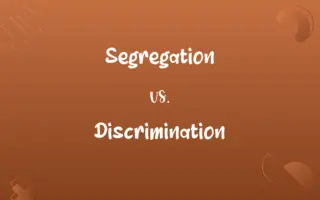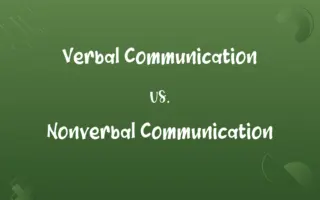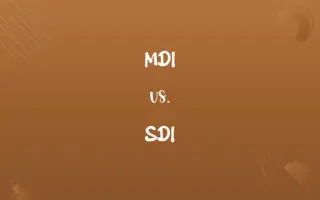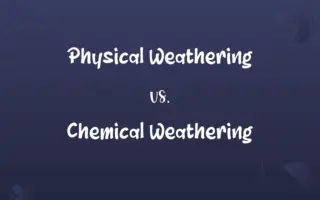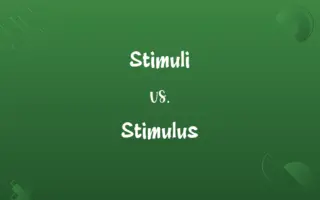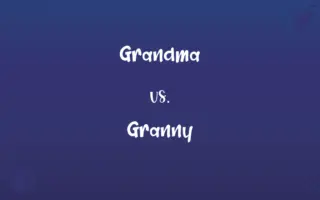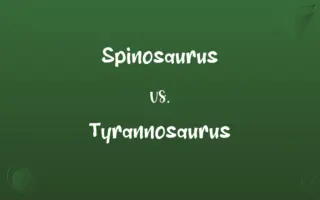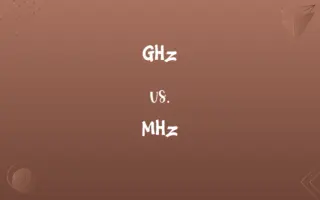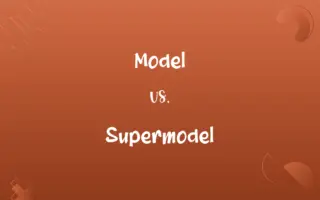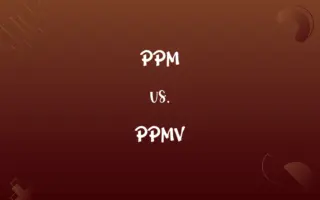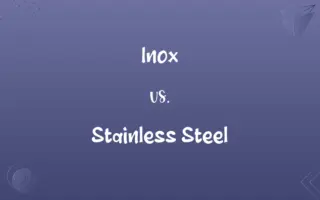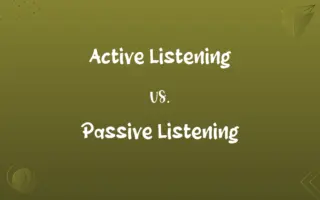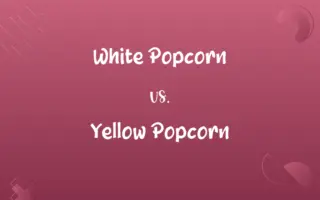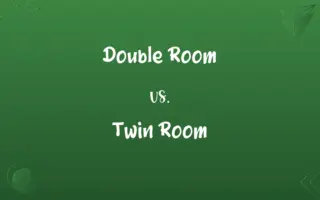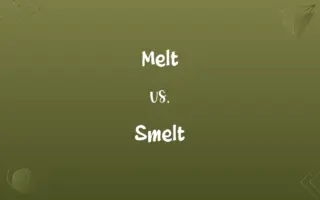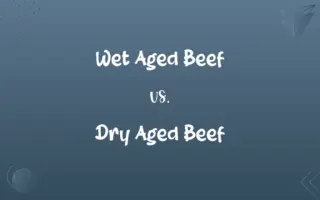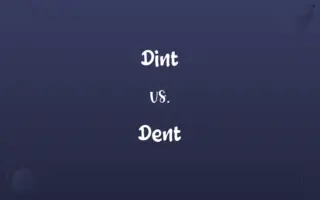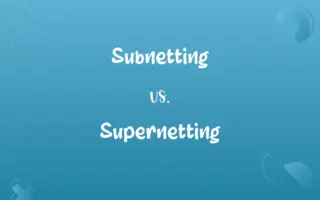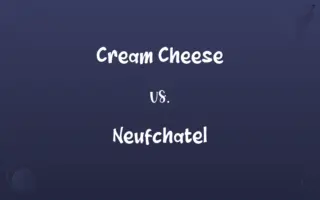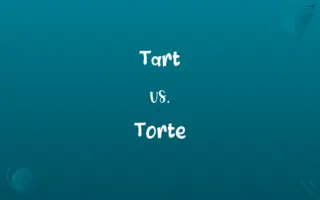Particle vs. Molecule: Know the Difference

By Shumaila Saeed || Updated on December 25, 2023
A particle is a small piece of matter, while a molecule is a group of atoms bonded together.
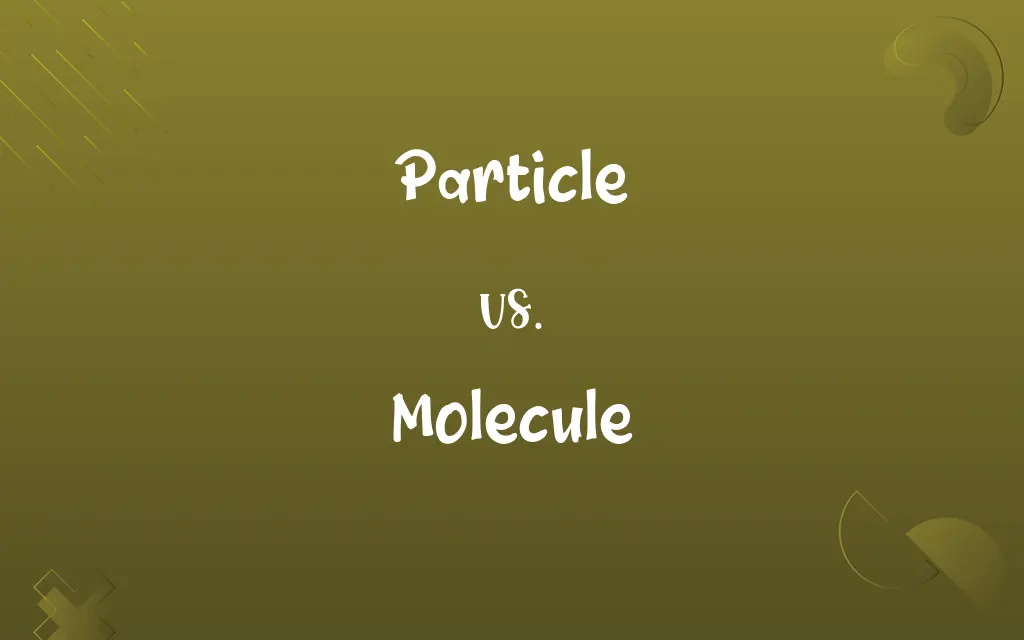
Key Differences
A particle represents a small piece of matter, which can be an atom, a molecule, or another physical unit. In contrast, a molecule specifically refers to a group of atoms bonded together, representing the smallest fundamental unit of a chemical compound that can take part in a chemical reaction.
Shumaila Saeed
Dec 05, 2023
While particles can exist independently or as part of larger structures, molecules are always composed of two or more atoms bonded together. This difference highlights that all molecules are particles, but not all particles are molecules.
Shumaila Saeed
Dec 05, 2023
The study of particles often encompasses a broad range of physical phenomena, including subatomic particles like electrons and protons. Molecules, on the other hand, are studied in the context of chemistry, focusing on the ways atoms bond and interact.
Shumaila Saeed
Dec 05, 2023
Particles can be charged, like ions, or neutral, like neutrons. Molecules are typically neutral, but they can become ions if they gain or lose electrons.
Shumaila Saeed
Dec 05, 2023
In terms of size, particles can vary widely, from subatomic particles to larger particles like pollen grains. Molecules, however, are typically at the nanometer scale, with their size determined by the number and type of atoms they contain.
Shumaila Saeed
Dec 05, 2023
ADVERTISEMENT
Comparison Chart
Composition
Can be single atoms, molecules, or other units
Always consists of two or more atoms
Shumaila Saeed
Dec 05, 2023
ADVERTISEMENT
Particle and Molecule Definitions
Particle
A small piece of matter.
Dust particles are visible in the sunlight.
Shumaila Saeed
Nov 25, 2023
Molecule
A tiny mass in chemistry.
A molecule of DNA carries genetic information.
Shumaila Saeed
Nov 25, 2023
Molecule
A group of atoms bonded together.
A water molecule consists of two hydrogen atoms and one oxygen atom.
Shumaila Saeed
Nov 25, 2023
ADVERTISEMENT
Molecule
A particle consisting of two or more atoms.
Oxygen molecules in the air are essential for breathing.
Shumaila Saeed
Nov 25, 2023
Particle
A grammatical unit smaller than a word.
Not in cannot is a particle.
Shumaila Saeed
Nov 25, 2023
Molecule
A chemical structure that has a specific chemical formula.
The molecule of caffeine energizes many people in the morning.
Shumaila Saeed
Nov 25, 2023
Molecule
The smallest particle of a substance that retains the chemical and physical properties of the substance and is composed of two or more atoms; a group of like or different atoms held together by chemical forces.
Shumaila Saeed
Oct 19, 2023
Particle
A very small or the smallest possible amount, trace, or degree
Not a particle of doubt.
Shumaila Saeed
Oct 19, 2023
Particle
A body whose spatial extent and internal motion and structure, if any, are irrelevant in a specific problem.
Shumaila Saeed
Oct 19, 2023
Molecule
(chemistry) The smallest particle of a specific element or compound that retains the chemical properties of that element or compound; two or more atoms held together by chemical bonds.
Hydrogen chloride is a diatomic molecule, consisting of a hydrogen atom and a chlorine atom.
Shumaila Saeed
Oct 19, 2023
Molecule
One of the very small invisible particles of which all ordinary matter is supposed to consist.
Shumaila Saeed
Oct 19, 2023
Particle
An uninflected item that has grammatical function but does not clearly belong to one of the major parts of speech, such as up in He looked up the word or to in English infinitives.
Shumaila Saeed
Oct 19, 2023
Molecule
The smallest part of any substance which possesses the characteristic properties and qualities of that substance, and which can exist alone in a free state.
Shumaila Saeed
Oct 19, 2023
Particle
In some systems of grammatical analysis, any of various short function words, including articles, prepositions, and conjunctions.
Shumaila Saeed
Oct 19, 2023
Molecule
A group of atoms so united and combined by chemical affinity that they form a complete, integrated whole, being the smallest portion of any particular compound that can exist in a free state; as, a molecule of water consists of two atoms of hydrogen and one of oxygen. Cf. Atom.
Shumaila Saeed
Oct 19, 2023
Molecule
(physics and chemistry) the simplest structural unit of an element or compound
Shumaila Saeed
Oct 19, 2023
Particle
(Archaic) A small part of something written, such as a clause of a document.
Shumaila Saeed
Oct 19, 2023
Particle
A very small piece of matter, a fragment; especially, the smallest possible part of something.
Shumaila Saeed
Oct 19, 2023
Molecule
The smallest unit of a chemical compound.
A molecule of salt is formed from sodium and chlorine.
Shumaila Saeed
Nov 25, 2023
Particle
(physics) Any of various physical objects making up the constituent parts of an atom; an elementary particle or subatomic particle.
Shumaila Saeed
Oct 19, 2023
Particle
(linguistics) A part of speech that has no inherent lexical definition but must be associated with another word to impart meaning, often a grammatical category: for example, the English word to in a full infinitive phrase (to eat) or O in a vocative phrase (O Canada), or as a discourse marker (mmm).
Shumaila Saeed
Oct 19, 2023
Particle
(Christianity) In the Roman Catholic church, a crumb of consecrated bread; also the smaller breads used in the communion of the laity.
Shumaila Saeed
Oct 19, 2023
Particle
A minute part or portion of matter; a morsel; a little bit; an atom; a jot; as, a particle of sand, of wood, of dust.
The small size of atoms which uniteTo make the smallest particle of light.
Shumaila Saeed
Oct 19, 2023
Particle
Any very small portion or part; the smallest portion; as, he has not a particle of patriotism or virtue.
The houses had not given their commissioners authority in the least particle to recede.
Shumaila Saeed
Oct 19, 2023
Particle
A subordinate word that is never inflected (a preposition, conjunction, interjection); or a word that can not be used except in compositions; as, ward in backward, ly in lovely.
Shumaila Saeed
Oct 19, 2023
Particle
A body having finite mass and internal structure but negligible dimensions
Shumaila Saeed
Oct 19, 2023
Repeatedly Asked Queries
What determines the size of a molecule?
The size of a molecule is determined by the number and type of atoms it contains.
Shumaila Saeed
Dec 05, 2023
Can particles exist independently?
Yes, particles can exist independently, like single atoms or ions.
Shumaila Saeed
Dec 05, 2023
What is a particle in physics?
In physics, a particle is a small localized object to which can be ascribed several physical properties such as volume or mass.
Shumaila Saeed
Dec 05, 2023
How is a molecule different from an atom?
A molecule is made up of two or more atoms bonded together, whereas an atom is the basic unit of a chemical element.
Shumaila Saeed
Dec 05, 2023
Are all particles visible to the naked eye?
No, many particles, especially at the atomic or molecular level, are too small to be seen without magnification.
Shumaila Saeed
Dec 05, 2023
Can a molecule be a compound?
Yes, a molecule can be a compound if it is made up of different elements. For example, carbon dioxide (CO2) is a molecular compound.
Shumaila Saeed
Dec 05, 2023
What’s the difference between molecular and atomic particles?
Atomic particles refer to individual atoms or subatomic particles, whereas molecular particles refer to groups of atoms bonded together to form molecules.
Shumaila Saeed
Dec 05, 2023
What is the role of particles in chemistry?
In chemistry, particles such as atoms and molecules are the building blocks of matter.
Shumaila Saeed
Dec 05, 2023
Are ions considered particles?
Yes, ions, which are atoms or molecules with a net electric charge, are considered particles.
Shumaila Saeed
Dec 05, 2023
What is a real-life example of a molecule?
Water (H2O) is a common example of a molecule.
Shumaila Saeed
Dec 05, 2023
Can a molecule be charged?
Yes, molecules can become ions and thus be charged by gaining or losing electrons.
Shumaila Saeed
Dec 05, 2023
Are particles always stable?
Not all particles are stable. Some, especially in the subatomic realm, can be very unstable and prone to change or decay.
Shumaila Saeed
Dec 05, 2023
Is a virus considered a particle or a molecule?
A virus is considered a particle, as it is a complex structure much larger than a molecule.
Shumaila Saeed
Dec 05, 2023
Can molecules exist in different states of matter?
Yes, molecules can exist in all states of matter – solid, liquid, and gas, depending on their composition and environmental conditions.
Shumaila Saeed
Dec 05, 2023
How do particles behave?
The behavior of particles varies widely depending on their type, size, and the forces acting upon them. For example, subatomic particles follow the principles of quantum mechanics.
Shumaila Saeed
Dec 05, 2023
What is the significance of molecules in biology?
In biology, molecules are crucial as they form the basis of cells and are responsible for various biological processes, like DNA for genetics and proteins for bodily functions.
Shumaila Saeed
Dec 05, 2023
Is a molecule the same as a chemical?
A molecule is a specific structure of atoms, while a chemical is a broader term that can refer to any substance with a distinct molecular composition.
Shumaila Saeed
Dec 05, 2023
Are all molecules organic?
No, molecules can be organic (containing carbon) or inorganic (not containing carbon).
Shumaila Saeed
Dec 05, 2023
Is water a particle or a molecule?
Water (H2O) is a molecule composed of two hydrogen atoms and one oxygen atom bonded together.
Shumaila Saeed
Dec 05, 2023
Can particles change form?
Yes, particles can change form, especially in high-energy physics contexts, where particles can transform, decay, or combine.
Shumaila Saeed
Dec 05, 2023
What role do molecules play in chemistry?
In chemistry, molecules are fundamental as they make up chemical substances and participate in chemical reactions, determining the properties and behaviors of different materials.
Shumaila Saeed
Dec 05, 2023
Share this page
Link for your blog / website
HTML
Link to share via messenger
About Author
Written by
Shumaila SaeedShumaila Saeed, an expert content creator with 6 years of experience, specializes in distilling complex topics into easily digestible comparisons, shining a light on the nuances that both inform and educate readers with clarity and accuracy.

